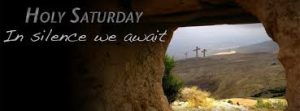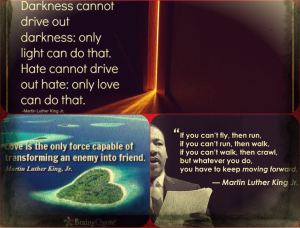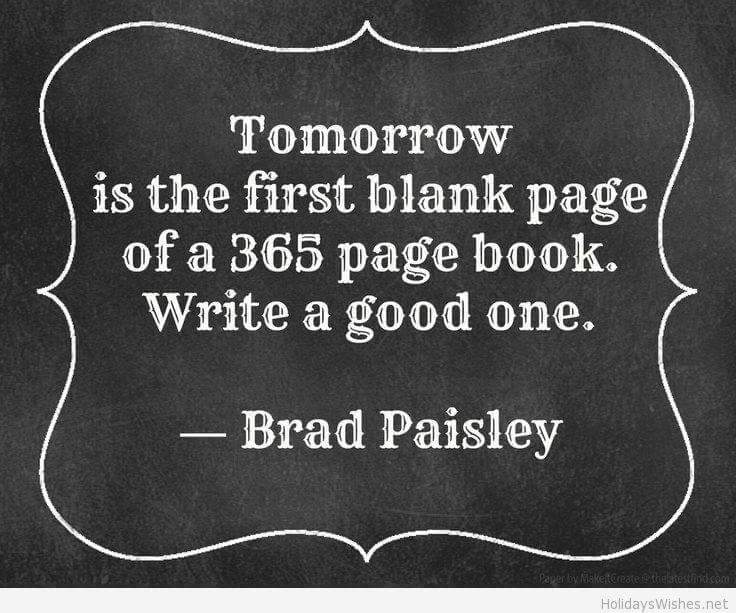Life’s Journey Blog
Holy Saturday: Mindfully Taking It All In
Holy Saturday, the day after the death of Jesus, Christians await, in hope and in faith, for God to show us a sign that Jesus is truly His son. When we think of the emotions of the followers of Jesus, so sure that He was the savior, to experience His death, their heartbreak and confusion must’ve been unbearable! Were they duped? How were they so wrong to think that Jesus was God? Yet, because of everything that they experienced while with Jesus, there still exists a sense of hope in their hearts. They don’t yet understand, and they are questioning, but they haven’t yet fully rejected the belief that Jesus is the son of God.
Taken from the Christian prayer-book “The Liturgy of the Hours”, here is an ancient sermon attributed to Easter yet prayed on Holy Saturday. What does this sermon says to you in your life’s journey:
“Something strange is happening – there is a great silence on earth today, a great silence and stillness. The whole earth keeps silence because the King is asleep. The earth trembled and is still because God has fallen asleep in the flesh and he has raised up all who have slept ever since the world began. God has died in the flesh and hell trembles with fear. He has gone to search for our first parent, as for a lost sheep. Greatly desiring to visit those who live in darkness and in the shadow of death, he has gone to free from sorrow the captives Adam and Eve, he who is both God and the son of Eve. The Lord approached them bearing the cross, the weapon that had won him the victory. At the sight of him Adam, the first man he had created, struck his breast in terror and cried out to everyone: “My Lord be with you all.” Christ answered him: “And with your spirit.” He took him by the hand and raised him up, saying: “Awake, O sleeper, and rise from the dead, and Christ will give you light.” I am your God, who for your sake have become your son. Out of love for you and for your descendants I now by my own authority command all who are held in bondage to come forth, all who are in darkness to be enlightened, all who are sleeping to arise. I order you, O sleeper, to awake. I did not create you to be held a prisoner in hell. Rise from the dead, for I am the life of the dead. Rise up, work of my hands, you who were created in my image. Rise, let us leave this place, for you are in me and I am in you; together we form only one person and we cannot be separated. For your sake I, your God, became your son; I, the Lord, took the form of a slave; I, whose home is above the heavens, descended to the earth and beneath the earth. For your sake, for the sake of man, I became like a man without help, free among the dead. For the sake of you, who left a garden, I was betrayed to the Jews in a garden, and I was crucified in a garden. See on my face the spittle I received in order to restore to you the life I once breathed into you. See there the marks of the blows I received in order to refashion your warped nature in my image. On my back see the marks of the scourging I endured to remove the burden of sin that weighs upon your back. See my hands, nailed firmly to a tree, for you who once wickedly stretched out your hand to a tree. I slept on the cross and a sword pierced my side for you who slept in paradise and brought forth Eve from your side. My side has healed the pain in yours. My sleep will rouse you from your sleep in hell. The sword that pierced me has sheathed the sword that was turned against you. Rise, let us leave this place. The enemy led you out of the earthly paradise. I will not restore you to that paradise, but I will enthrone you in heaven. I forbade you the tree that was only a symbol of life, but see, I who am life itself am now one with you. I appointed cherubim to guard you as slaves are guarded, but now I make them worship you as God. The throne formed by cherubim awaits you, its bearers swift and eager. The bridal chamber is adorned, the banquet is ready, the eternal dwelling places are prepared, the treasure houses of all good things lie open. The kingdom of heaven has been prepared for you from all eternity.”
{loadmodule mod_custom,continue the conversation here or on social media}
Good Friday: Love in Action
How do we express love for others? Do we, in faith, trust enough to share our love? When we are suffering and find life difficult, in faith do we turn to Jesus who not only suffered, but who also found life’s situations difficult to endure?
Today, in faith and trust, knowing that Jesus understands what it’s like to make difficult decisions, to suffer, to feel physical and emotional pain, and to love, do we turn to Him in prayer and ask for guidance, for strength, for hope, for peace, for …..
{loadmodule mod_custom,continue the conversation here or on social media}
How Love and Betrayal Are One
As I mentioned in my earlier post, Holy Week is a spiritual time for me filled with much emotion. The apostles who followed Jesus gave up their livelihood and families to follow a person whom they hoped was their longed-for messiah; the savior of the Jewish people. After spending much time with Jesus, the apostles experience the awesome high of walking into Jerusalem with the crowds praising the man they are following. Imagine how they felt, knowing that they are with an important person, and they are one of only 12 selected personally by Him! Think of how this would make you feel. But then come the events at the end of the week that will change their lives forever.
The night of Passover, as Jesus dines for the last time with his apostles, we learn that one of the selected twelve, Judas, will betray and hand over Jesus to the authorities, and Peter will deny, not once but three times, that he knows Jesus. The rest of the apostles, the closest friends of Jesus, flee and hide. Think about this … one of Jesus’ closest companions turns Him over to be arrested; His selected leader, Peter, will deny ever knowing Him; the rest of the friends run away; at a time when Jesus needed His friends’ support the most!
Historically, around the year 33AD, the Roman Empire ruled the known Western world including Jerusalem and the Jewish people. Over time, as the apostles slowly come to an understanding of Jesus as the Son of God, they long for the day that He will save them from the Romans. This was part of the reason for Judas’ betrayal, to force Jesus’ hand into fighting the Romans to whom he turned over Jesus. Neither Peter nor Judas understood that Jesus was a Savior of souls, not a conqueror of the Romans. The freedom Jesus brings is an inner freedom, not a physical freedom. Therefore, when Jesus is arrested and neither He nor the angels come to save Him, the apostles become scared and confused.
Put in the historical context it is a bit easier to understand why Peter, although not fleeing the scene like the rest, denies knowing Jesus. It is not necessarily to betray his friend, but out of a sense of fear and confusion. Peter doesn’t want to be arrested, too. Peter is scared and confused.
Jumping ahead in the story, after the resurrection of Jesus, He finds Peter to reconcile with him. He allows Peter the opportunity of forgiveness, but not just a simple “I’m sorry”, but a deeper reconciliation based on love and compassion. Jesus approaches Peter not to reproach him for his denial, but to simply ask Peter if he loves Him. Peter responds with “yes, you know that I love you.” Can you imagine the emotions Peter is experiencing?
Personally, a song from the early 1990’s by the rock band Savatage seems to sum up the emotional exchange of Jesus and Peter during their reconciliation. The song, “Believe”, was not written for this purpose, but it speaks to me in a way of framing the depth of the emotions felt by Peter and Jesus as Peter is asked if he loves Jesus. This is the verse from the song which I attribute to Peter’s words to Jesus. As you read the verse, place yourself in the scene of Peter, confused and afraid, ashamed and embarrassed, standing before the risen Jesus:
“I never wanted to know; Never wanted to see; I wasted my time Till Time wasted me. I never wanted to go; I always wanted to stay; ‘Cause the person I am are the parts that I play. So I plot and I plan and I hope and I scheme to the lure of a night filled with unfinished dreams. And I’m holding on tight To a world gone astray; As they charge me for years
I can no longer pay.”
The refrain of the song, which I attribute to Jesus responding to Peter, is both powerful and comforting:
“I am the way
I am the light
I am the dark
Inside the night
I hear your hopes
I feel your dreams
And in the dark
I hear your screams.
Don’t turn away
Just take my hand
And when you make your final stand
I’ll be right there
I’ll never leave
And all I ask of you… Believe…”
On this Holy Thursday, let’s reflect on:
- Trust. How can I trust even when I don’t fully know the person or the situation? What can I do to get a better understanding when events happen of which I am unfamiliar?
- Forgiveness. Holding onto resentments and anger led both Peter and Judas to depression and despair. How can I learn to forgive others, and truly move on. How can I learn to forgive myself?
- Love. How can I truly love another even when they disappoint me? How can I try to more fully understand their context and what is happening in their life. Can I embrace them as Jesus embraced Peter?
Life is not easy; but by placing ourselves into the drama of the apostles and Jesus during this critical week in their lives can give us guidance and teach us lessons.
{loadmodule mod_custom,continue the conversation here or on social media}
Palm Sunday: Love And Be Loved Is Our Challenge
Today, for Christians around the world, Palm Sunday marks the beginning of Holy Week, the days leading up to the death and resurrection of Jesus Christ. Spiritually, Holy Week has always been a special time for me as this week is a high point of much emotion in the life of Jesus, His early followers, and for me. In my personal spiritual journey I try to understand what it was like living in the time of Jesus. I read historical books as well as the Bible in my attempt to more deeply understand and feel the emotions of the people of the time. In my effort for a deeper and closer relationship with God, I immerse myself into the Bible stories, trying to feel what they felt; experience what they experienced. This week, Holy Week, is a recollection of not just an ancient story, but a retelling of real events which happened to real people who lived real emotions, real feelings, and real experiences.
Our challenge this week is to enter into the emotions of the apostles and the bystanders as they experienced the events leading up to the betrayal, arrest, death and later resurrection of Jesus. The emotions of this week begin today, with the joyous celebration of Jesus entering, as a beloved hero, into Jerusalem. Later this week the joyous celebration and exaltation of today becomes the confusion of Thursday as one of their own betrays and hands over Jesus to the Romans to be arrested. Quite quickly the feeling of confusion turns to fear and depression on Friday when Jesus is tortured and later killed as a common criminal. Jesus, for whom they left family and jobs, is now dead, betrayed by one of their own! Three days later comes the bewilderment and hope as news spreads of Jesus’ resurrection Sunday morning!
As this week unfolds I will share with you my reflections and feelings of the events of Holy Thursday, Good Friday, and Easter Sunday. I invite you to join with me in my spiritual journey this week. Share with us your reflections and emotions as you journey through this holy week.
My challenge for today:
- What can I do to more deeply understand the emotions and reactions of the apostles as they triumphantly enter Jerusalem?
- What can this week teach me about my faith life?
- How do I hope to have my life changed by this exercise of delving into the emotions of the stories of this week?
{loadmodule mod_custom,continue the conversation here or on social media}
Love As A Passion To Be Pursued
Today, as we celebrate Valentine’s Day, our thoughts and feelings turn to love and to those whom we love. But do we really understand what that simple, yet powerful word, LOVE, means?
Personally, this is a tough word for me to reflect on since my natural inclination is toward the intellectual pursuits rather than understanding my emotions. Yes, as a counselor I deal with the emotions of my clients, but note what I wrote: “my” emotions. I have no issue in helping others to come to an understanding of their own emotions and how they affect their lives. But my emotions, well, that’s a whole different story.
So, what is love? This is what the Christian bible states about love:
1If I speak with the tongues of men and of angels, but do not have love, I have become a noisy gong or a clanging cymbal. 2If I have the gift of prophecy, and know all mysteries and all knowledge; and if I have all faith, so as to remove mountains, but do not have love, I am nothing. 3And if I give all my possessions to feed the poor, and if I surrender my body to be burned, but do not have love, it profits me nothing.4Love is patient, love is kind and is not jealous; love does not brag and is not arrogant, 5does not act unbecomingly; it does not seek its own, is not provoked, does not take into account a wrong suffered, 6does not rejoice in unrighteousness, but rejoices with the truth;7bears all things, believes all things, hopes all things, endures all things.8Love never fails; but if there are gifts of prophecy, they will be done away; if there are tongues, they will cease; if there is knowledge, it will be done away.9For we know in part and we prophesy in part; 10but when the perfect comes, the partial will be done away. 11When I was a child, I used to speak like a child, think like a child, reason like a child; when I became a man, I did away with childish things. 12For now we see in a mirror dimly, but then face to face; now I know in part, but then I will know fully just as I also have been fully known. 13But now faith, hope, love, abide these three; but the greatest of these is love.
Angry At The World? Use That Anger For Good
Maybe it’s just me, but it appears that anger is the main emotion of our time. Yes, there is kindness, and I do meet people who are not angry; yet, of the people I meet, more display anger than who display kindness. I don’t think my experience is abnormal.
In a study conducted a year ago, researchers Okuda, et al. discovered that 7.8% of the Americans they surveyed, 34,000 adults over the age of 18, found an overall prevalence of inappropriate, intense, or poorly controlled anger. That percentage may not seem high, but round out the numbers, and for every 34,000 adult Americans, 3,000 of them exhibit poorly controlled anger. (“Prevalence and correlates of anger in the community: results from a national survey.“ April 2015)
Why is there so much anger? We see it in the streets, in demonstrations, on social media, etc. I have my theories, but the focus of this article is not on the why, or the origin, of the anger. Rather, I write this article on anger from the perspective of mindfulness. In mindfulness we are urged to remain in the moment, non judgmentally. Following that suggestion, I don’t necessarily need to understand why someone is angry. What would be helpful, assuming the anger is taking a person away from their peace, is to guide that person to shift their perspective and so take an action in the hopes of returning that person to sense of peace.
As a counselor and practitioner of mindfulness, I don’t perceive the feeling of anger as either positive or negative. The feeling is the feeling; what I do with the feeling is what is either positive or negative. So, anger in and of itself is not the issue. My perception and actions based on the anger is the issue. Therefore, that many people these days seem to be angry is not what bothers me. What many of them are or are not doing is the issue.
Anger, as an emotion, has it’s place. Anger has been used successfully as a means of defense against danger, both physical and emotional. Anger, felt when we perceive a threat, produces in us an increase of the chemical adrenaline. This chemical prepares the body for a physical fight, and for later coping with the emotions of the event.
In today’s society, whenever we feel that our ideas, beliefs, or opinions are attacked, our basic instinct kicks in resulting in an anger response. Anger is undoubtedly the most judgmental of our emotions. It’s also the most moralistic, self-righteous, and repudiating. Most of us will defend, sometimes to the death, what we believe. Attacking a person’s beliefs or opinions is akin to an attack of the person themself. Why? Because we are the thinker of our thoughts! In essence, if you attack my thoughts, you attack what I created, and in so doing you attack the creator, me.
Anger is probably the only emotion which we consciously cling to. Think about the last time you felt happiest. How long did that feeling, in it’s intensity, last? And when the feeling drifted away, many of us say “I wish it lasted longer.” Yet, when it comes to anger, when was the last time that feeling simply drifted away? For many of us, we hold onto it, ruminating over and over the offense which was done. Logically, between the emotions of happiness and anger, which would you choose to stick around? I would choose happiness, but as I write this I’m not angry. If I were, odds are I’d be choosing anger.
Why do we hold on to anger? Let’s examine what the emotion of anger does for us:
- It provides us with a feeling of power.
- It enables us to believe that we are in control of the situation.
- It confirms for us that we are right and correct in our stance.
Examining this list, why wouldn’t I want to hold onto anger? Actually, there is a number one reason why we can’t bear to let go of our anger. If I give up feeling angry then I allow myself to feel less powerful, less in control, and I may discover that I’m not completely correct in my thoughts or beliefs. If I am willing to give over power and control to re-examine my thoughts, I have just opened myself up to self-examination!
Self-examination is one of the goals of meditation, and a means of growth. But self-examination can be scary as we uncover aspects about us that we may not wish to open, or aspects that even we don’t like. As we hold onto our anger we don’t allow for this self-examination. In many cases, that which angers us in others is exactly what we are covering up in ourselves!
As I see it, there is what I call a “healthy anger” as opposed to an “unhealthy anger”. Healthy anger is feeling angry by choice (I grant that all emotions ultimately are chosen, as I often mention. For the sake of this analogy I am taking some license). For example, you witness an injustice and become angry since your belief system speaks to justice for all. Your motivation for feeling the anger is not toward a self-righteous indignation or a sense to overpower someone “because I can”. Your anger, in this scenario, most likely will result in action toward resolving the injustice, whereby all parties involved will be granted a sense of peace. As peace overtakes the anger one is willingly open to self-examination. While the unhealthy anger is that anger which I hold in a self-righteous manner with no motivation or intention toward a sense of peace or self-examination.
The person who practices mindfulness, meditation, and self-examination (the best they can) recognizes within them a sense of peace and peacefulness. Note that I don’t speak of the “feeling” of peace, rather, the sense of peace. Feelings, such as anger and happiness, are fleeting. They come and go. Having a sense of peace within is not fleeting. A sense of inner peace speaks to an awareness of the person and their environment. We can feel angry, happy, sad, etc,, while at the same time maintaining a sense of peace. Look to people such as Ghandi and Martin Luther King, Jr. I have no doubt they felt anger, that was part of their motivation as to why they acted. But a reason their actions were not violent, and their rhetoric was of love is that they had a sense of inner peace allowing them to feel anger, yet not allowing them to betray their beliefs through their actions.
When we feel emotions and act in unison with our core beliefs, not violating our true self, then we are at peace. We may feel anger or sadness at situations or even toward specific people, but in maintaining a union between those feelings and our actions to our core beliefs, we retain our sense of inner peace even as we struggle through the turmoil of our feelings.
Our challenge is not to stop feeling angry. Rather, our challenge is to learn how best to respond to anger. Here are my steps for using anger for the good:
- Prior to feeling angry, practice mindful meditation and spend time in self-examination.
- When you feel anger, find your inner peace to help change your perspective to understand the situation from everyone’s viewpoint.
- Take action in union with your core beliefs and which will ultimately lead to the spreading of peace to all involved.
- When the situation is over, refuse the urge to hold onto the anger. Let your inner peace over take the anger and allow yourself time to re-charge.
I agree that there is much in our world toward which to feel anger, and there are many places and people who do not have a sense of peace. Use the steps above to rise to the challenge of using your anger for the good.
{loadmodule mod_custom,continue the conversation here or on social media}
Our Joyous Expectations of Newness for the New Year
Happy New Year 2017!! Our expectations of newness for the year upon us is obvious. As I reflect on writing this post I realized that this time last week I gathered with family and friends to enjoy Christmas Day, while just last night I joined with family and friends watching the Times Square ball descend into a new year. Many events happen in a short time period during the holiday season. But what does it all mean? As I relax with a good cup of coffee on this first morning of the new year, I reread this Marvin comic I
happened upon a couple of years ago. When I think about it, what does make this morning any different from yesterday’s? It feels the same, I’m doing the same things, the people around me are the same, the scenery is the same, and yes, the smell is the same. But I am told that this morning is the start of a new year! New beginnings out of the old. New opportunities and adventures await me! Ahhhh….. the promise of newness. But, as reflected in the comic, it doesn’t feel new. Does it feel or smell new to you? So, if this new year “smells” like last year should I feel cheated out of that new car smell experience?
One of the reasons for this comic’s relevance is that many of us place too high of expectations on ourselves, especially this time of the year. I am not speaking against resolutions in general, but are your resolutions and expectations reasonable? Challenging oneself can be a growth opportunity since through challenges and struggles we learn and grow. But what if you found yourself wanting more once you realized the new year didn’t smell any different from the old? What if you realize nothing has changed? For too many of us this is what happens along our journey. We expected a particular day to be one way, and when it wasn’t, we were disappointed.
In this new year, when our experiences may not smell as they “should” (according to how I feel they should smell), try to take a moment and look at your situation, the new year, and find a deeper reality. Look beyond yourself to other possibilities. Challenge yourself to learn something new about the world around you. In so doing, I have no doubt that your life’s journey will begin to take a new path.
May you all have a happy and blessed New year, filled with many new paths, adventures, and even new smells.
{loadmodule mod_custom,continue the conversation here or on social media}
Merry Christmas
our family nativity with St. Francis Assisi
Christmas has arrived! That magical time of the year when all seems to be at peace. That time of the year when nature seems still, wars paused, enemies celebrate together, kids believe in magic and the hope of treasure. A time when most of us recall how we spent the season as a child, longing once again for that simplicity of life. Amidst all the secular commercialization, this time of the year still seems to hold a special place for us.
This picture is of the manger scene our family has set up for over two decades, and since the 1980’s I have added the statue of St. Francis of Assisi to my manger scene. Why?
In a little town in Italy, named Greccio, in the year 1223, St. Francis led an evening prayer service for the towns’ people, and to make the event meaningful he decided to recreate, live, the nativity, the birth of Jesus. Prior to this event, the displaying of nativity scenes was unheard of. But for Francis, the importance of the nativity event was that it was a real event. Historically, in the town of Bethlehem, a child, later to be named Jesus by his parents, was born. Francis, believing that this child was the son of God born into our world wanted the people of Greccio to fully understand that our God is approachable and knows us for He was born as one of us. What better way to explain this concept than by actually reenacting the scene. The rest, as they say, is history.
This Christmas, how can I make “real” in my life that which happened over 2,000 years ago? Every year, since I was a child, I watch the classic show “How the Grinch Stole Christmas”. The original version brings back so many fond memories, and now as an adult I continue to enjoy it for the meaning of the story. The Grinch couldn’t take away Christmas by taking away the people’s “stuff”. Christmas, for the Who’s in Whoville, meant a lot more than what they had or didn’t have. For them, Christmas was an internal existence. A deeper sense of what the season is all about.
What is Christmas all about? Is it the birth of a child, the son of God, into the world? And if so, what does that mean for me today? The humble birth of Jesus is a sign of the love God has for us, and that love needs to be put into action in the love we have for others. In order for us to fully love another we first need to love and respect ourselves. As God becomes one of us He shows us the importance of us as humans. If God respects us than we also need to respect ourselves We were worthy enough for our Lord to become one of us, it is important for us to feel that worthiness within ourselves. When we love ourselves we are more fully able to love those around us, and that outpouring of love makes “real” the presence of God in our lives.
So, what is this season all about? Loving ourselves and loving others so that the love of God may be present in our world. This is what St. Francis tried to show the people of Greccio. I hope Francis’ message continues today in the nativity scenes we have set up. This Christmas season find ways to make Jesus real in the lives of others. If we all did this, gave the present of love to another, just think of how different our world be. Each day is a new opportunity for us. Let’s take the magic of this season and make today a magical day of love.
I wish you and your loved ones a very merry, blessed and peace-filled Christmas!!
{loadmodule mod_custom,continue the conversation here or on social media}
Trust is the meaning of Christmas Eve
Reason for the Season
Christmas Eve, for me as a child, was one of the longest days ever! As an adult, I find this day to be one filled with anticipation and excitement, for spiritually I know that tomorrow we commemorate the birth of Jesus my Lord. But today the birth is not my focus, rather, my focus turns to His mother, Mary. Mary, an unwed teenager from a small town in a desert is asked the impossible; to trust so deeply in God when asked to bear God’s son. I have no doubt that Mary’s “yes” came with some hesitation and trepidation. And I’m sure she did not always have a pleasant time of it when dealing with her future husband, her family, and just the fact of being pregnant in general. Yet, through it all, Mary never gave up.
Jesus was born to this poor teenage girl in a stable in a small town in the far reaches of the Roman empire. He was born to a girl who took a leap of faith and trusted in her God. She persevered, not knowing the outcome. Onward she traveled, despite hardship and fear.
For me, Christmas is not only a time of celebration and remembrance; it is also a time when I feel challenged to live the example set forth by Mary; to trust, in faith, in my God; to persevere along the journey even though I may be scared or not understanding its end or purpose in my life. Today, let’s follow the example of Mary, a poor young teenage girl, who struggled the best she could, and in the end provided the world with its savior.
I share this song for your reflection (words are below). This song sums up for me how I imagine Mary felt. How do the words speak to you?
[youtube https://www.youtube.com/watch?v=6RVTZDgcpqM]
Breath of Heaven
I have traveled many moonless nights
Cold and weary with a babe inside
And I wonder what I’ve done
Holy Father, You have come
Chosen me now to carry Your Son
Do You wonder as You watch my face
If a wiser one should have had my place
But I offer all I am for the mercy of Your plan
Help me be strong, help me be help me
Breath of heaven
Hold me together
Be forever near me
Breath of heaven
Breath of heaven
Light in my darkness
Pour over me Your holiness
For You’re holy
Breath of heaven
Hold me together
Be forever near me
Breath of heaven
Breath of heaven
Light in my darkness
Pour over me Your holiness
For Your holy breath of heaven
{loadmodule mod_custom,continue the conversation here or on social media}












